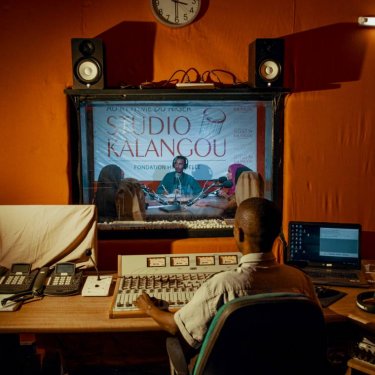Niger’s Studio Kalangou is Africa’s first JTI-labeld media outlet

Reporters Without Borders (RSF) is pleased to announce that Niamey-based Studio Kalangou is the first African media outlet to be certified according to the standards of the Journalism Trust Initiative (JTI), which promotes news reporting that is produced professionally and in accordance with journalistic ethics.
Backed by Switzerland’s Fondation Hirondelle, Studio Kalangou has been producing a daily two-hour news programme about Niger in five languages – French, Hausa, Zarma, Tamashek and Fula – since January 2016. Its aim is to inform the various components of Nigerien society, facilitate dialogue among them, and contribute to Niger’s development.
Broadcast by a network of 46 partner radio stations located in all of Niger’s regions, the two-hour news programme is produced by a staff of 15 journalists and translators in Niamey, the capital, with the help of a network of correspondents throughout the country.
“We congratulate Studio Kalangou for this achievement,” RSF secretary-general Christophe Deloire said. “Becoming Africa’s first media outlet to receive JTI certification is a key milestone, not only for this radio station but also for the Journalism Trust Initiative. We hope many other media will follow this example by evaluating and, if necessary, adjusting their editorial practices so that compliance with the JTI standard can give them a competitive advantage. Making trustworthy journalism more visible and sustainable is imperative in these times of crisis.”
Studio Kalangou editor Alhassane Abdou Mahamane said: “This certification has great significance for Kalangou in the media landscape of both Niger and Africa as a whole. This is recognition for a job well done by a Fondation Hirondelle project. It also shows that the people of Niger were not mistaken in placing their trust in our programme and the various other activities we carry out in Niger.”
The Journalism Trust Initiative (JTI) is an international journalism standard that aims to change the rules of the game in the international digital arena in order to end the competitive advantages that disinformation and fake news currently enjoy over reliable content, and to promote quality journalism.
The JTI standard measures media ownership transparency and the use of professional journalistic procedures, including consistent editorial policies, correction mechanisms, management of automatically generated content, internal/external control and so on. The JTI is a structural tool for combatting disinformation and for restoring a competitive advantage to trustworthy media of all sizes, all types and from all over the world.
For media outlets, there are three optional stages to the JTI process. Firstly, they can use the JTI questionnaire to conduct an internal self-assessment and, on the basis its findings, possibly carry out improvements. Then, if they want, they can share the self-assessment’s findings publicly, in a structured way. And finally, the self-assessment can be independently audited by an accredited certification entity.
Around 100 media outlets throughout the world have so far joined the JTI, which continues to be deployed in Africa.
To find out more
The JTI website: journalismtrustinitiative.org
The JTI app: www.jti-app.com
JTI Africa officer:
Marc ABOFLAN
Tel: +228 91448424



